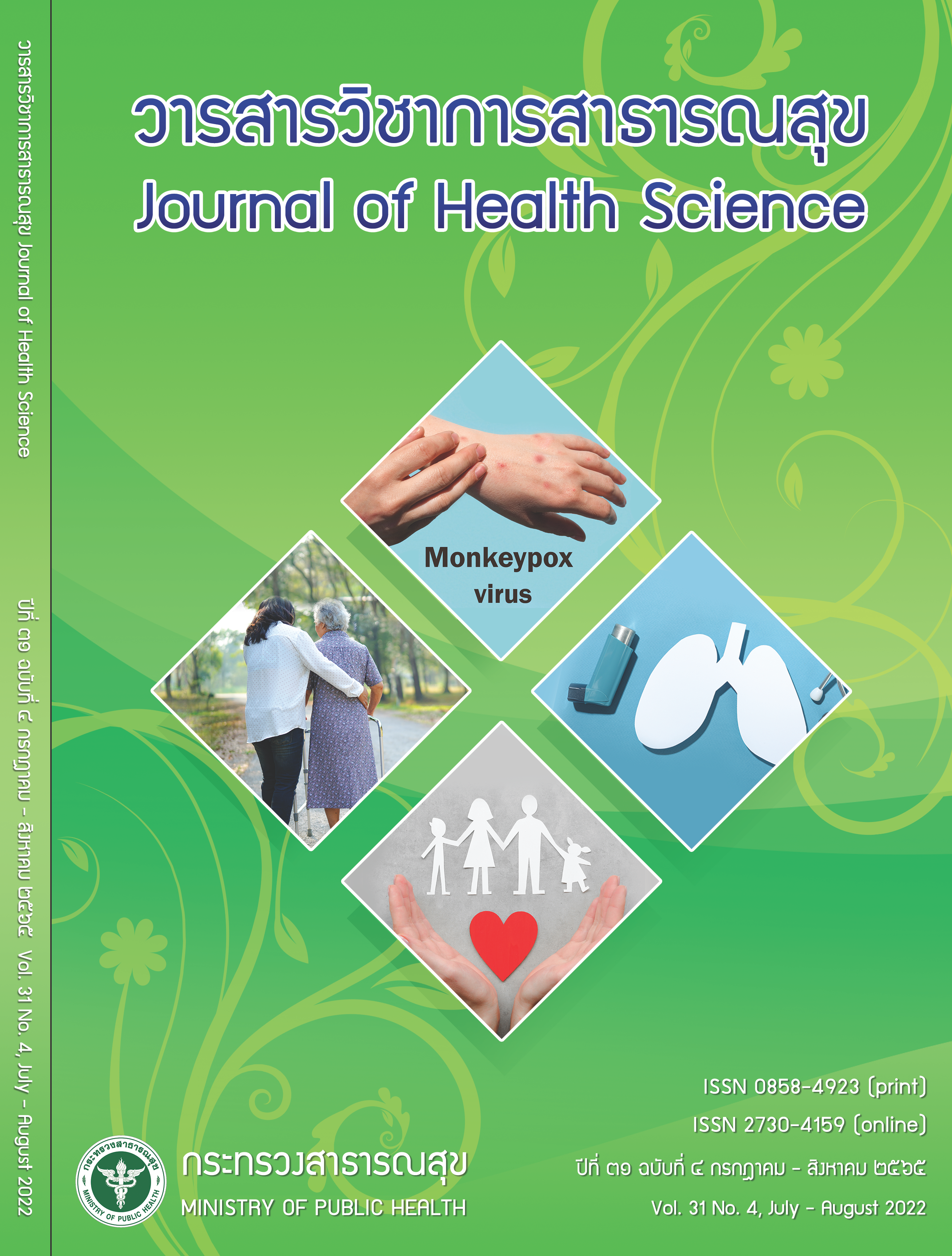Effectiveness of a Management Program to Control Hypertension among Stroke Patients
Keywords:
stroke patients, knowledge, stress, self-care behaviors, hypertension management programAbstract
This study was a quasi-experimental, single group, pre and posttest design. Its purpose was to compare knowledge, stress, self-care behavior and blood pressure levels of stroke patients before and after participating in the management program developed by the authors. The samples were 14 stroke patients with high blood pressure who were admitted in the Chiang Mai Neurological Hospital, selected by purposive sampling. The research tools included a general questionnaire to assess knowledge, stress, self-care behaviors of patients and hypertension management program for stroke patients. Participation began while the patients were admited in the hospital; and follow-up valuation was performed via LINE application at 4 weeks after discharge from the hospital. Data were analyzed using descriptive statistics, paired t-test, Shapiro-Wilk test and Wilcoxon signed ranks test. The study found that there was no difference in knowledge level and stress level before and after entering the program. The postprogram hypertension management behavior increased significantly (p<0.05), and the hypertension management program for stroke patients was effective and appropriate to the patient’s context. The family was a social institution that played an important role in supporting patients to make lifestyle changes; together with the support from the health team personnel resulting in better health of the patients.
Downloads
Downloads
Published
How to Cite
Issue
Section
License

This work is licensed under a Creative Commons Attribution-NonCommercial-NoDerivatives 4.0 International License.







